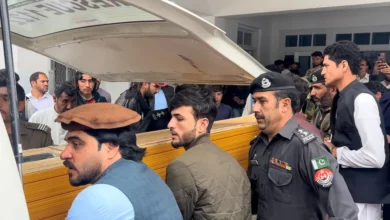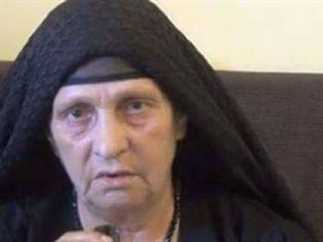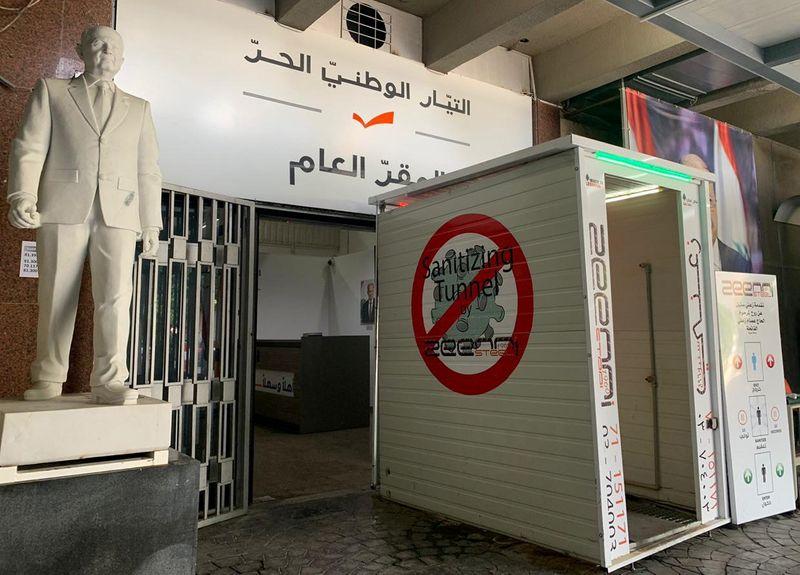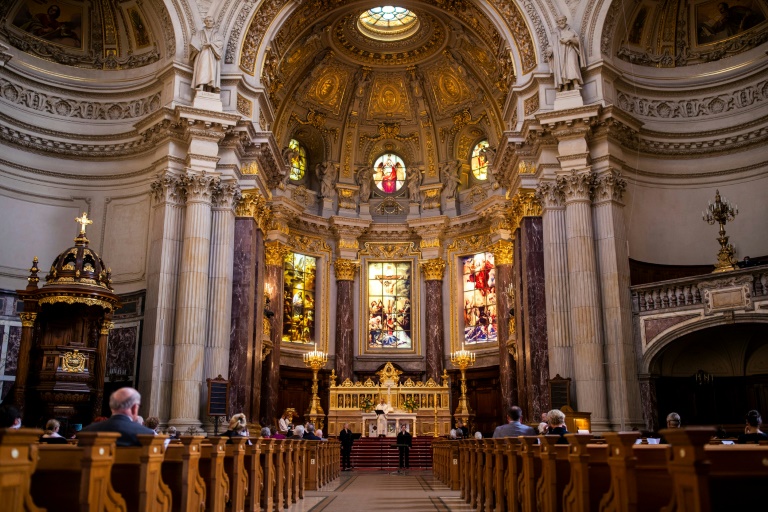Qena–In Naga Hammadi, the sadness over the death of six young church deacons on the eve of Coptic Christmas has not faded away. Eight days later, the house of Farid Labib, father of the late 16-year-old Bishoy, the youngest victim of the act of of violence that enraged thousands of Coptic Christians in the southern city of Naga Hammadi, was still full of mourners; friends and neighbors who came to offer their condolences for the loss.
Bishoy’s mother was lost for words, explaining that it was still too painful to talk about the moment when she lost her only son, who died in a fatal shooting that left five other Christians killed and led to a series of demonstrations and riots.
The father recounted how he found his son, who was shot in the neck, lying dead in front of the church in a pool of blood, saying that all he wanted now was "justice; that the law is enforced. That these criminals take what they deserve. Not that it will compensate for anything, it won’t. But I want to see justice done to them."
Bishoy was killed in a drive-by shooting, as he and other deacons walked out of the Mar Yohanna Church on their way to the Naga Hammadi Diocese, following a night mass in celebration of the Coptic Christmas on 6 January. The church in Naga Hammadi had reported receiving threats, verbal and in text messages, from anonymous sources. Despite this, the security around churches in the area was not beefed up and the head of diocese, who was allegedly a target, risked getting shot himself. Authorities arrested the three perpetrators who they claimed were "wanted criminals" dismissing the incident as a "terrorist act against a group of Egyptians," not a sectarian one targeting Christians, despite tying it to earlier attacks against Copts in Farshout, several kilometers away from Naga Hammadi.
Labib’s words reflected a general feeling currently prevalent among Coptic Christians in Egypt: that they’re being persecuted for their religion and that this marks a new age of "martyrdom."
Then again, "we knew that there was a danger of attacks [on Christmas eve]. We knew that that there was going to be a surprise. But I couldn’t stop my son from going to church," he said.
"We are the sons of martyrs," Labib added to Al-Masry Al-Youm. "We won’t leave our hometown. And we won’t stay inside. Like our fathers, we will venture out in order to seek martyrdom." Bishoy’s uncle agreed saying that despite the sorrow, "we’re proud of Bishoy" for the way he died.
Labib, like other Christians in Naga Hammadi, suspected that more attacks against Copts are imminent because of "the culture of hating the other that is rampant everywhere. This hatred that manifests in our daily lives, in getting jobs and in dealing with people, in everything." He said that he knew that the security presence in the town is not permanent, "it will all die out." But Labib said that this wouldn’t stop him or his daughters from trying to lead a "normal life."
Outside of Labib’s house, the town itself remained overwhelmed by security forces and riot police — as any attempts to "disturb the peace" were aggressively quelled while journalists’ moves were monitored and often restricted.
Raafat, a resident of Bahgoura, a village around 5km off Naga Hammadi that experienced acts of vandalism by angry Muslim mobs, said, "we see people being taken at 3 and 4 AM for talking or guiding [members of] the press. The police take their pictures while they’re with the press and come for them later, when the reporters are gone." Across Naga Hammadi, and in Bahgoura, truckloads of riot police could be seen stationed around churches, while armored vehicles patrolled the streets regularly, even in the morning.
Many of the shops around town, especially those that suffered damages during the protests that ensued following the shooting, remain closed down. Two streets, el-Tahrir and 30 March, still carry the scars of the damaging, looting and torching that took place a week earlier. Raafat, who owns a small electronics shop in Naga Hammadi, said that the authorities has not approached people who have sustained damages during the rioting, including himself. "In addition, if a Muslim attacks a Christian in his shop, or vice versa, and you take them to the police station, no one is held responsible. They force you to reconcile in order to maintain peace. And you end up with nothing at the end. They threaten us: we can either reconcile or spend the night in detention."
Father Tadros, of the Church of the Virgin Mary in Bahgoura, told Al-Masry Al-Youm that several of the Christian youth were arrested for protesting the attacks against the deacons, and he said he had been receiving complaints from Christian members of the community regarding how the situation was dealt with by authorities.
"They’ve arrested our kids, and of course they were sad and angry, but they’ve taken them despite the fact that we are the injured party, our shops were ruined and our houses destroyed," he said.
Father Tadros had refused giving interviews inside the church, and preferred instead to voice his grievances at his house. However, the interview was cut short when police officers sent the church’s gatekeeper to the house, asking to talk to Al-Masry Al-Youm’s reporter and forbidding the priest from giving more comments. Father Tadros commented on this by saying that "this is how the situation is" as the gatekeeper murmured, "it’s horrible here these days."
Al-Masry Al-Youm was ordered to leave Bahgoura, as General Safwat Fahmy explained that "reporters need special permits from the Interior Ministry’s public relations office in order to be able to talk to anyone here. We have sent instructions to the press with that." He also said that no photography was allowed, especially of the damaged Christian property in the area. Al-Masry Al-Youm, however, has not received any official instructions regarding limitations on reporting in Bahgoura, or elsewhere in Naga Hammadi prior to this incident.
Esmat, a Christian resident of Naga Hammadi who refused to give his last name in fear of retaliation by security forces, said that he and his family have been avoiding the streets since the incident. "There’s a lot of caution. The police is here, but that doesn’t mean that [the attacks] could not happen again. Some people have gone back to work but others are afraid," he said. Esmat also explained that ever since the shooting, rumors of Muslims attacking Christians in their homes or in markets, and vice versa, have been circulating and "it’s hard to find where the truth is. And you can’t trust all what you hear."
Girgis, a young Christian man, added that they could not even get information about the degree of safety in Naga Hammadi from authorities or the mainstream media, "since authorities deny everything. Last week, fights were raging nearby in the market, it was on fire. And at the same time on TV, we were hearing Qena’s governor swear that everything was under control and that nothing was happening. You hear them and you think life is pink. But in reality, it’s all so different."




